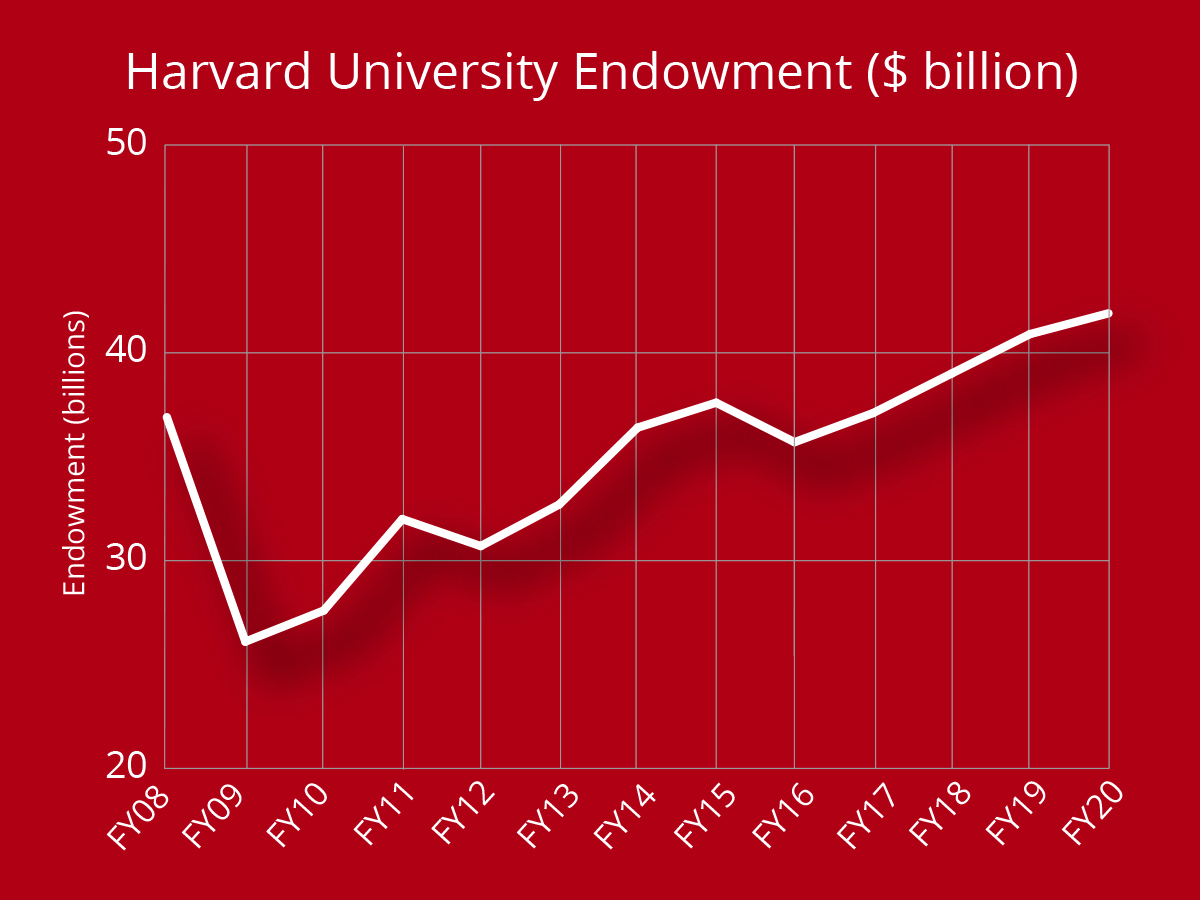Harvard Faces $1 Billion Funding Cut: Exclusive Report On Trump Administration's Ire

Table of Contents
The Alleged Reasons Behind the Funding Cut
The alleged $1 billion funding cut to Harvard is shrouded in controversy, with accusations of political motivations dominating the narrative. The Trump administration's alleged ire is purportedly rooted in several factors, all relating to perceived political bias within the university.
-
Accusations of Liberal Bias: Critics within the conservative movement have long accused Harvard of harboring a liberal bias in its curriculum and research. This alleged bias, they contend, manifests in the hiring of faculty, the selection of research topics, and the overall ideological leaning of the institution. This argument often points to the perceived lack of diverse viewpoints presented within certain academic departments.
-
Conservative Backlash: The perceived liberal bias at Harvard has fueled a significant conservative backlash. This backlash, amplified by certain media outlets, has arguably played a role in shaping the Trump administration's perspective on the university and its funding. The perceived lack of ideological balance is cited as justification for reducing federal funding.
-
Documented Evidence (or Lack Thereof): While accusations of bias are prevalent, concrete documented evidence directly linking these accusations to the proposed funding cut remains elusive. The administration has yet to release official documentation outlining the specific reasons for the proposed reduction in higher education funding targeted at Harvard. This lack of transparency fuels further speculation and debate.
-
Key Players within the Administration: Identifying the specific individuals or groups within the Trump administration pushing for these cuts is crucial to understanding the motivations behind this decision. Further investigation is needed to shed light on the internal dynamics and decision-making processes within the administration that led to this potential action impacting government funding for universities.
Impact on Harvard's Research and Educational Programs
A $1 billion funding cut would have a devastating impact on Harvard's research and educational programs. The consequences would ripple through the institution and the broader academic community.
-
Research Project Impacts: Many ongoing research projects across various disciplines, from the life sciences to the humanities, rely heavily on federal funding. The potential cut would force the university to drastically curtail or even abandon crucial research initiatives, potentially hindering groundbreaking discoveries and advancements. This would particularly affect research funding dependent on government grants.
-
Student Financial Aid: The impact on student financial aid and accessibility to higher education at Harvard would be substantial. Reduced funding could lead to increased tuition fees or reduced financial aid packages, potentially limiting access for students from low- and middle-income backgrounds. The university budget would need to be drastically realigned.
-
Faculty Positions: Faculty layoffs or significantly reduced hiring are likely consequences of such a massive budget shortfall. This would not only impact current faculty but also limit the university's ability to attract and retain top talent in the future. Faculty positions dependent on research grants would be particularly vulnerable.
-
Ripple Effects: The impact extends beyond Harvard's campus. Reduced research funding at such a prestigious institution would have ripple effects throughout related industries and the broader academic community, potentially slowing down innovation and impacting the nation's competitiveness in research and development.
Harvard's Response and Potential Legal Challenges
Harvard has yet to formally respond to the reported $1 billion funding cut, however, experts anticipate a robust response. Legal challenges are highly probable.
-
Official Response: Harvard's official statement, once released, will be closely scrutinized. The statement will likely address the allegations of bias and defend the university's commitment to academic freedom and rigorous research.
-
Legal Action: Given the magnitude of the potential funding cut and the lack of transparency, Harvard is expected to explore legal options to challenge the Trump administration's decision. Legal action could involve arguing against the constitutionality or fairness of the proposed cuts.
-
Mitigation Strategies: Harvard's response will likely involve exploring various strategies to mitigate the financial impact. This could include exploring alternative funding sources, implementing cost-cutting measures, and engaging in fundraising efforts.
-
University Autonomy: The potential legal battle will have broader implications for university autonomy and the appropriate level of government oversight in higher education. The case will likely raise questions about the balance between government funding and the independence of academic institutions.
Broader Implications for Higher Education Funding
The potential funding cut to Harvard sets a concerning precedent for higher education funding across the nation.
-
Precedent for Other Universities: The decision, if implemented, could embolden other administrations to target universities based on perceived political leanings, creating a climate of fear and self-censorship within academia.
-
Long-Term Effects on Higher Education: The potential impact on research funding and academic freedom are deeply troubling. A decrease in government funding for higher education could significantly hamper the quality and accessibility of higher education across the country.
-
Political Influence on Research Funding: The incident highlights the potential for political influence to significantly shape the allocation of government funding for research. Concerns about political interference in the research process could dampen the pursuit of objective knowledge and discovery.
-
Increased Political Polarization: The situation could further exacerbate the existing political polarization within the higher education sector, potentially leading to increased division and mistrust between institutions and the government.
Conclusion
This report has explored the potential $1 billion funding cut facing Harvard University, allegedly fueled by the Trump administration's dissatisfaction. The implications are far-reaching, threatening Harvard's research endeavors, educational programs, and setting a dangerous precedent for political interference in higher education funding. The potential legal battles and the broader impact on academic freedom and research funding are significant concerns for the future of higher education. This unprecedented situation highlights the complex interplay between government funding and university autonomy.
Call to Action: Stay informed about the developments in this crucial case of Harvard's funding and the broader implications for higher education funding. Follow our updates for further analysis and reporting on the Harvard funding cuts and its effects on higher education. Understanding the implications of these potential higher education funding cuts is critical for the future of research and academic freedom.

Featured Posts
-
 Enhanced Security Collaboration China And Indonesia Forge Closer Links
Apr 22, 2025
Enhanced Security Collaboration China And Indonesia Forge Closer Links
Apr 22, 2025 -
 Assessing Pope Franciss Papacy The Conclaves Verdict
Apr 22, 2025
Assessing Pope Franciss Papacy The Conclaves Verdict
Apr 22, 2025 -
 Zuckerberg And The Trump Administration A New Era For Meta
Apr 22, 2025
Zuckerberg And The Trump Administration A New Era For Meta
Apr 22, 2025 -
 China And Indonesia Deepen Security Ties Through High Level Talks
Apr 22, 2025
China And Indonesia Deepen Security Ties Through High Level Talks
Apr 22, 2025 -
 Trump Protests A Nationwide Uprising
Apr 22, 2025
Trump Protests A Nationwide Uprising
Apr 22, 2025
